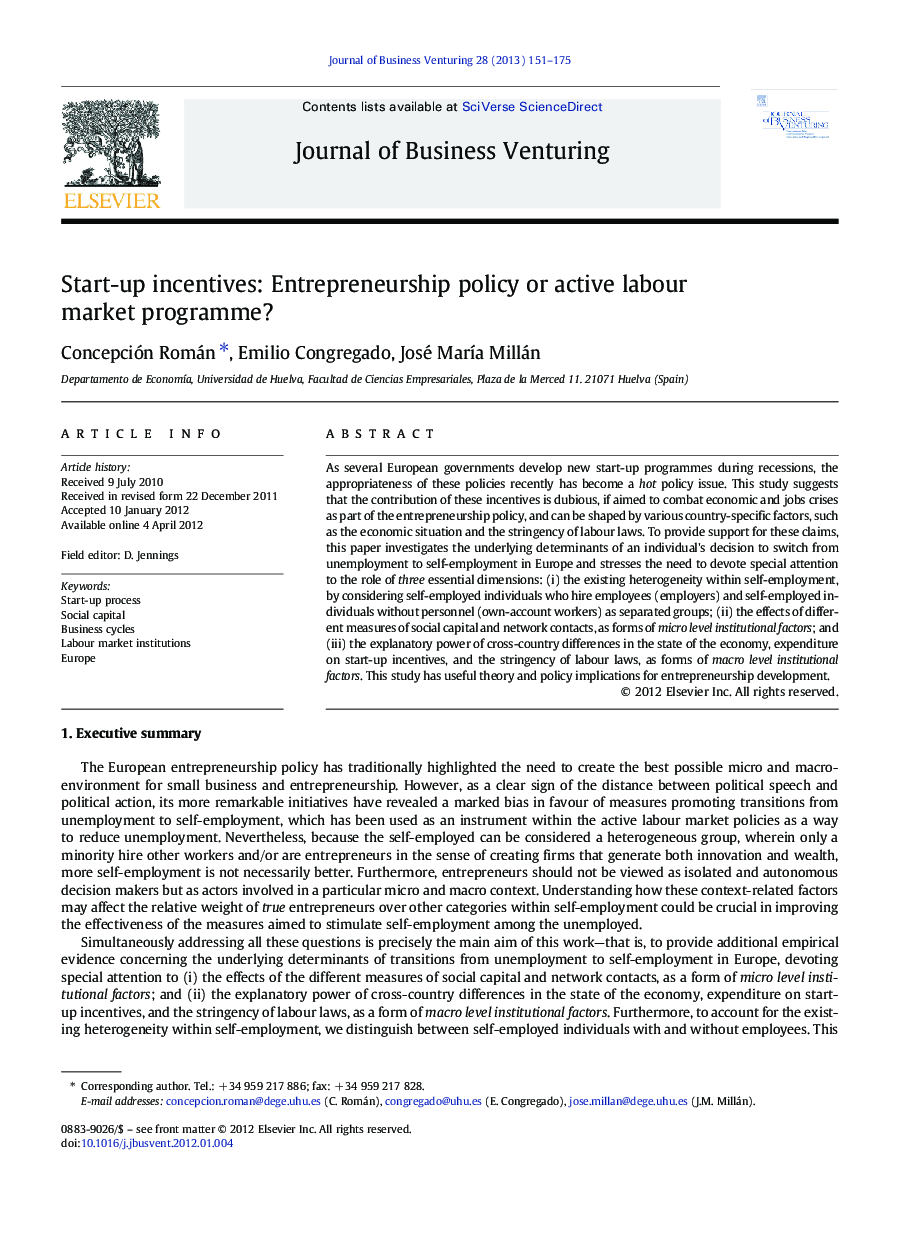| Article ID | Journal | Published Year | Pages | File Type |
|---|---|---|---|---|
| 1019455 | Journal of Business Venturing | 2013 | 25 Pages |
As several European governments develop new start-up programmes during recessions, the appropriateness of these policies recently has become a hot policy issue. This study suggests that the contribution of these incentives is dubious, if aimed to combat economic and jobs crises as part of the entrepreneurship policy, and can be shaped by various country-specific factors, such as the economic situation and the stringency of labour laws. To provide support for these claims, this paper investigates the underlying determinants of an individual's decision to switch from unemployment to self-employment in Europe and stresses the need to devote special attention to the role of three essential dimensions: (i) the existing heterogeneity within self-employment, by considering self-employed individuals who hire employees (employers) and self-employed individuals without personnel (own-account workers) as separated groups; (ii) the effects of different measures of social capital and network contacts, as forms of micro level institutional factors; and (iii) the explanatory power of cross-country differences in the state of the economy, expenditure on start-up incentives, and the stringency of labour laws, as forms of macro level institutional factors. This study has useful theory and policy implications for entrepreneurship development.
